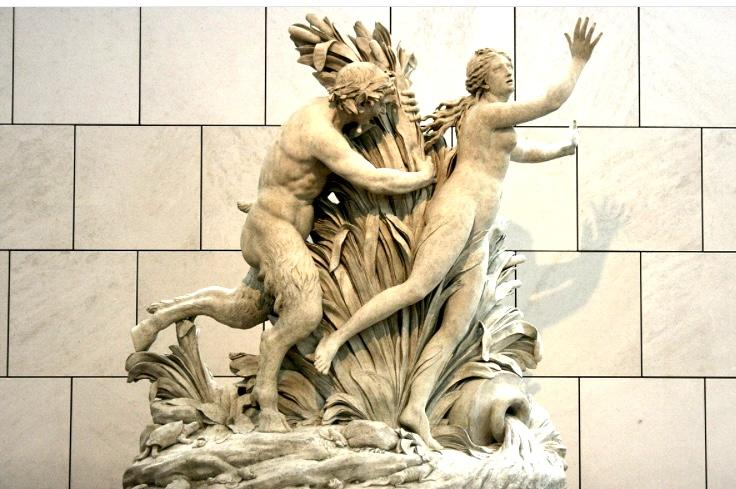A parcel of straws
Flutes are one of the most ancient musical instruments in the world. They were made with any material at hand: hollow bones of small birds, clay, reeds, bamboo, straw. From early times they were the instruments of shepherds and country folk.
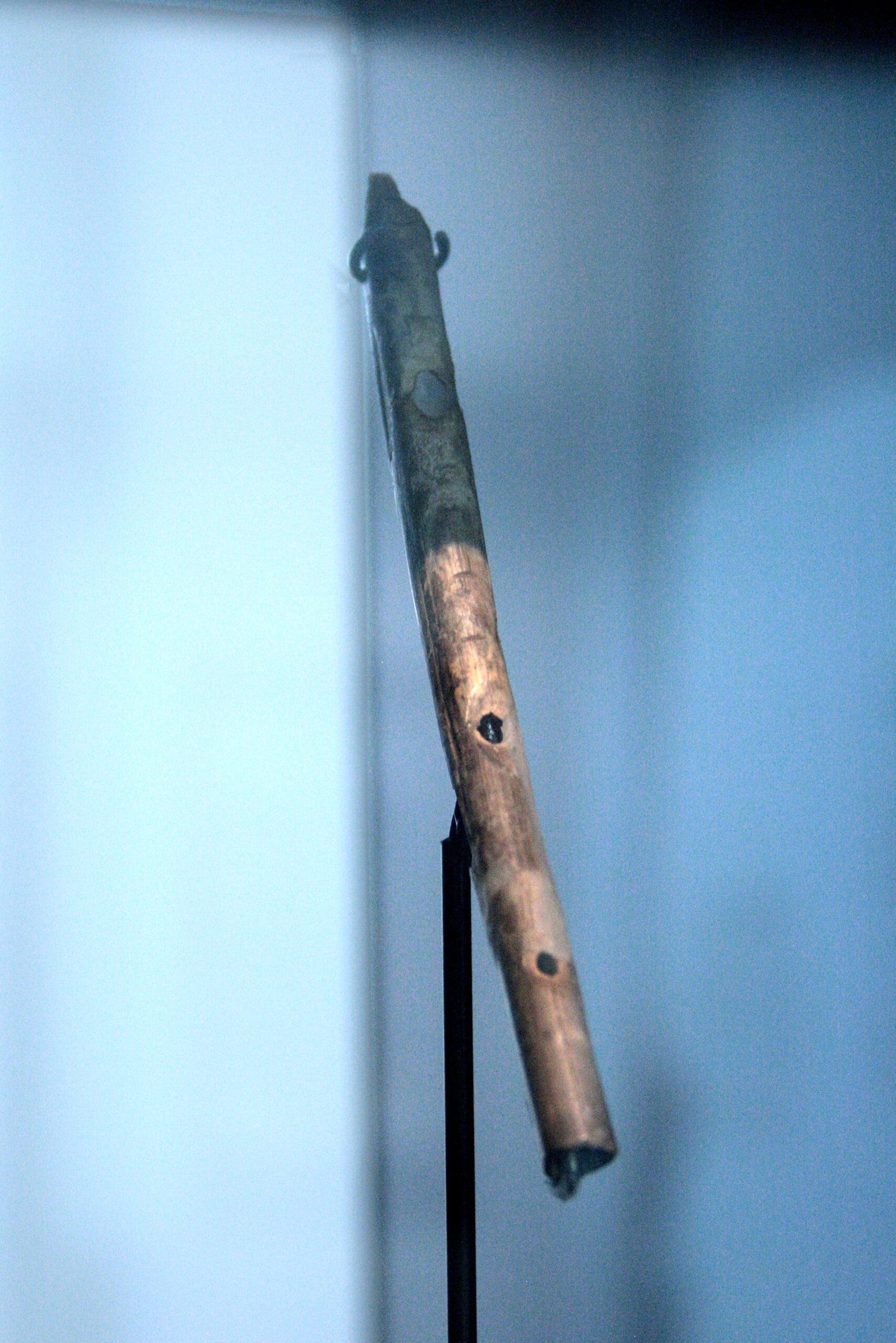
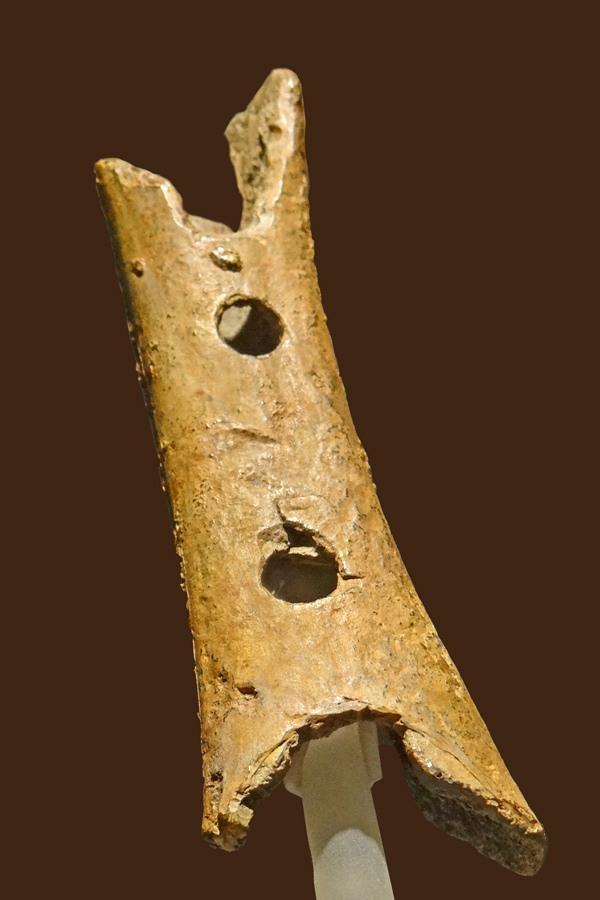
But the humble flute was also endowed with magical powers in many ancient cultures. The music was perceived as enticing, bewitching and had the ability to transport the soul into another world. For the Native American Hopi, the tunes of the flute carry messages from the Spirits to help people on their journey through life. We can read in Brother Grimms fairy tales the story of the Pied Piper from Hamelin. The town was infested with rats. A mysterious traveler played his flute and the rats followed him out of the city and were drowned in the Weser. When people refused to pay him, he led their children out of town with his flute and hid them in a mountain cave where they were never to be seen again.
Panpipes or pan flutes are made of pipes gradually increasing in length stuck together. They can be found all around the world but we shall see in this article why they owe their name to Greek god Pan and why they became his emblema.
Pan and Syrinx: a tale of lust, love, loss and redemption
Pan is not like the other gods of the Greek pantheon. He is ugly, even grotesque, a monstrous hybrid creature with horns and hindquarters of a goat (a symbol of lust and unbridled sexuality). His ugliness made him flee the lofty slopes of Mount Olympus to live in the forests and dales of Arcadia. Pan follows his natural instincts, he doesn’t have any moral or social boundaries. The word panic derives from Pan and describes the state of fear that paralyzes the nymphs (minor female nature deities) when he appears among them. Pan embodies desire in its most simple, primitive and instinctive brutality. But his encounters with maidens do not always end well.
The Roman poet Ovid tells us the story in his Metamorphoses. Syrinx was a naiad (water nymph) who caught Pan’s attention. But no one could be more different than Pan : she was a chaste maiden who devoted her life to virgin goddess Diana. So she fled in panic and reached the banks of the river Ladon. She asked for the help of her sisters and just when Pan was about to seize her, she changed into marsh-reeds.
But the story tells us of another metamorphosis. Loss and frustration are to change Pan and make him more human. He begins to sigh, he acutely feels the pain of loss. Lust changes into something more like longing and even love. He notices the world around him instead of being entirely absorbed by his desires : «while he sighed there, the wind moving in the reeds gave out a clear, plaintive sound. Charmed by this new art and its sweet tones, the god said: this way of communing with thee is still left to me. So unequal lengths of reed, joined together with wax, preserved the girl’s name». The pan pipes were invented.
Music is seen as a consolation, a means of compensating loss, of cherishing the memory of the lost one. The pipes become the material sign of the absent one. Pan will now use his natural creativity to compose tunes that he will even teach others.
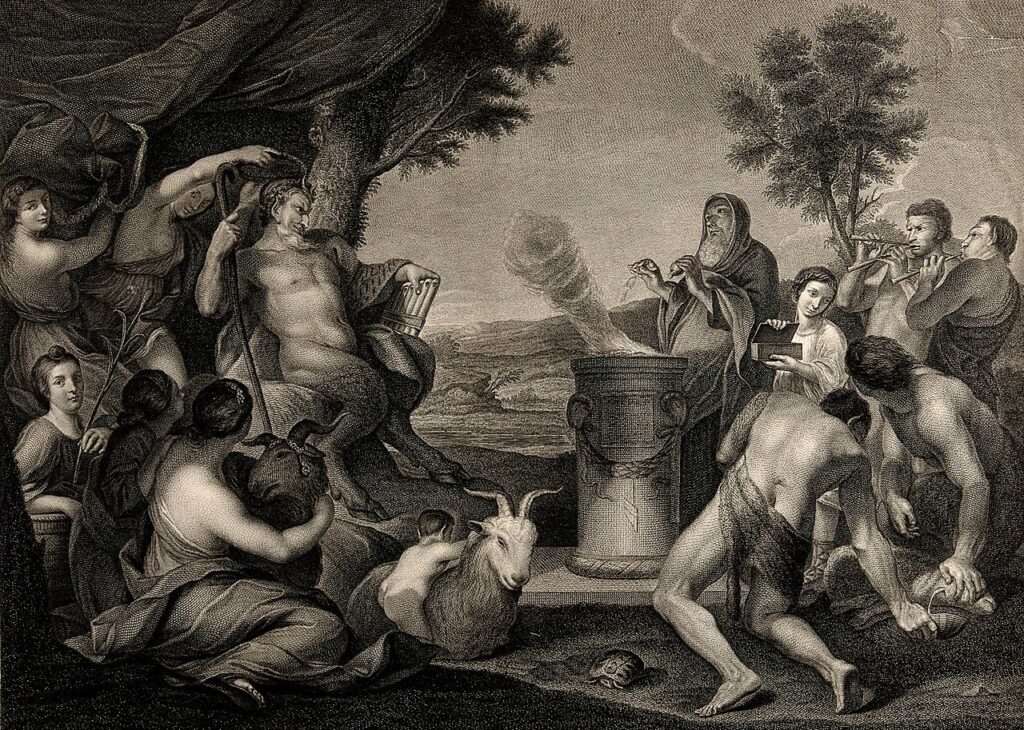
Music seems to have tamed -at least for the time being – the untamable god. However Pan’s music is an expression of his nature. It is unique. Thus Pan became the rival of the other music god, Apollo. However he did not challenge him directly.
Marsyas and Apollo. Flute or Lyre?
Pan was associated with the flute and pipes he created whereas Apollo was the master player of the lyre. However in the Ancient Greek world the flute was discarded as an unworthy instrument for a youth of noble birth. In book III of the Republic, Plato declares : «the lyre and cither are useful in the city and in the fields, shepherds would have little flutes to pipe on». Flute is considered fit for the shepherds and country folk Pan shares his life with. This confirms Pan’s general status of an outcast not worthy of the major Olympian gods.
To make things worse, goddess Athena used to play the flute until she came across her reflection in a mirror. She was shocked by the way the flute distorted her face and threw it away immediately. Marsyas, a satyr, picked up the neglected instrument and started playing. Satyrs were Pan’s companions in the wilderness and like him were half men, half goat. So Marsyas didn’t mind becoming more ugly by blowing into the flute. However his life turned into a tragedy when he became cheeky enough to challenge Apollo to a music contest.
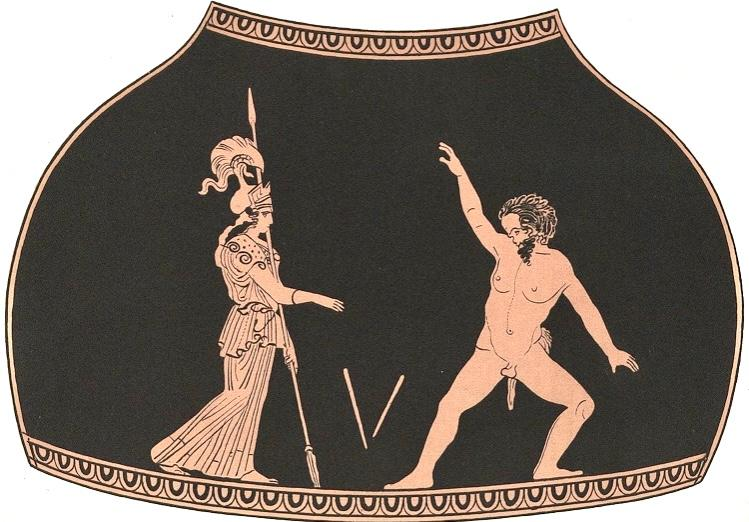
We must understand the real implications of this challenge. Marsyas and Pan are companions to Dionysus, god of wine, nature and pleasure. He is Apollo’s real opponent. In his book The Birth of Tragedy, German philosopher Nietzsche defines the essence of Greek art as a tension between two principles, the Apollonian and the Dionysiac. Apollo is the god of sun, order, refined art. Dionysus is the god of wine, wild nature and excess. Apollo represents harmony, serenity, rationality, control: cosmos. Dionysus represents disorder, exuberance, passion, intoxication, transe: chaos.
King Midas, judge of the contest, was utterly charmed by the magic tones of the flute. He gave the victory to Marsyas. Angry Apollo ordered Marsyas to be hung on a tree and flayed alive.
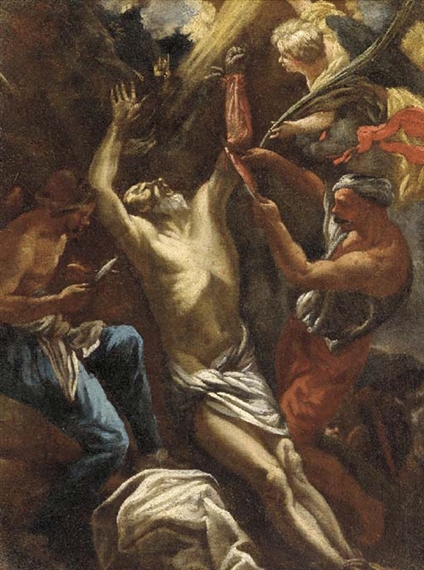
He punished Midas by giving him donkey’s ears (to show that he had no musical taste). Just as Pan is half human, half beast, a god both sublime and grotesque, the tragedy ends in comedy.
Midas was ashamed of his ears and hid them. Only his barber knew about them but he was sworn to secrecy. The poor man, unable to keep it to himself, dug a hole in the ground and whispered : « King Midas has donkey’s ears ». A little later, reeds grew in the hole and the wind moving through them carried the barber’s words throughout the city and the whole town knew their king was an ass. The same reeds could create enchanting music and spread silly gossip.
Let the English Renaissance poet John Lily sum up the story in the first lines of his poem Syrinx:
Pan’s Syrinx was a girl indeed,
Though now she’s turned into a reed;
From that dear reed Pan’s pipe does come,
A pipe that strikes Apollo dumb.
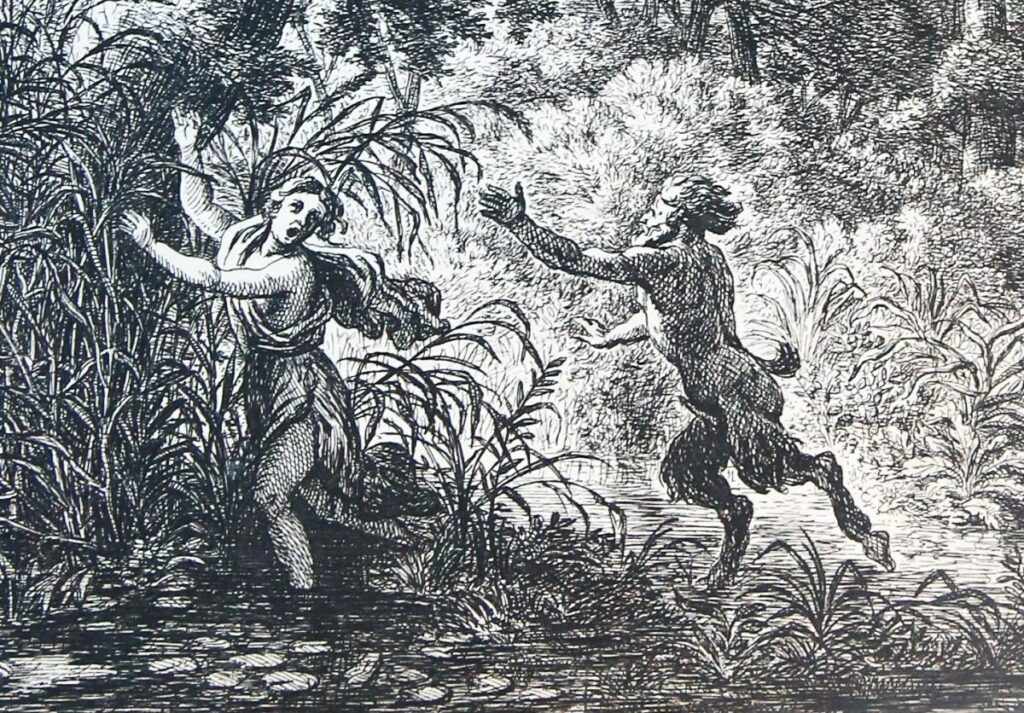
Source: https://www.cairn.info/
A little anthology of pan pipes music around the world: https://youtu.be (Synaulia is a group of musicians, historians and archeologists that reconstruct Greek and Roman instruments and compose tunes. This work is called Pavor or panic – the panic that seizes nymphs when they see Pan)
https://youtu.be (G Zamfir. Roumania)
https://youtu.be (South America. El condor pasa)
https://youtu.be (Mozambic)
Image Source: historycooperative.org, wikimedia.org, media.mutualart.com, pictures.abebooks.com
